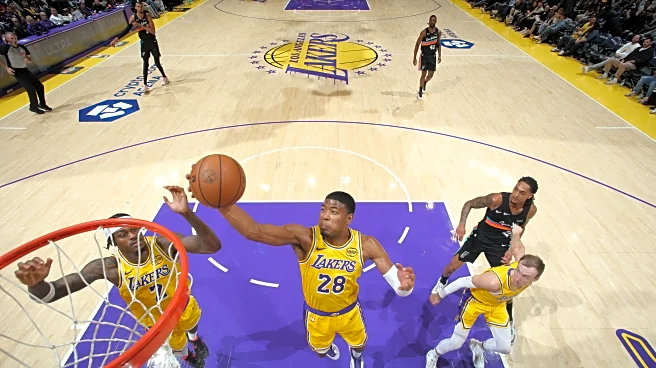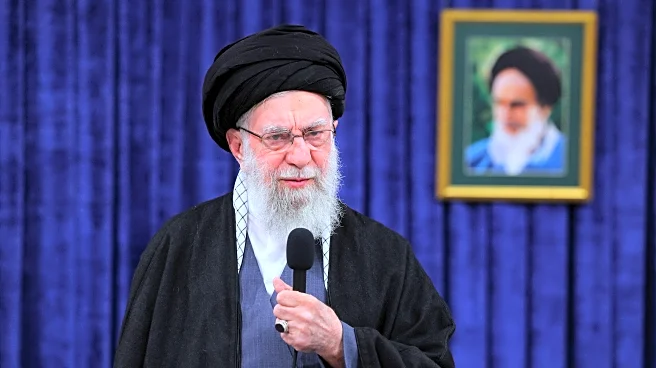What's Happening?
Joel Embiid, a prominent NBA player, has shared insights into his current state of mental and physical well-being. Embiid expressed happiness in being able to play basketball, emphasizing his joy in engaging
with the sport he loves. His teammate, Tyrese Maxey, noted the visible joy Embiid exhibited on the court, highlighting the positive atmosphere it created for the team. This development comes as Embiid continues to be a key player for his team, contributing not only through his skills but also by fostering a supportive and enthusiastic environment.
Why It's Important?
Embiid's positive mental and physical state is significant for his team and the broader NBA community. His well-being can enhance team performance, as a player's mental health often influences their on-court effectiveness and team morale. Embiid's happiness and enthusiasm may lead to improved team dynamics, potentially boosting the team's overall performance in the league. Additionally, his openness about mental health can encourage other athletes to prioritize their well-being, contributing to a healthier sports culture.
What's Next?
As Embiid continues to maintain his positive outlook, the team may experience increased cohesion and motivation. This could translate into better performance in upcoming games, potentially impacting their standings in the league. The team's management and coaching staff might also focus on supporting players' mental health, recognizing its importance in achieving long-term success. Fans and analysts will likely monitor Embiid's performance closely, assessing how his mental and physical state influences his gameplay and the team's results.
Beyond the Headlines
Embiid's emphasis on mental health highlights broader societal shifts towards recognizing the importance of psychological well-being in professional sports. This could lead to increased advocacy for mental health resources within sports organizations, promoting a culture where athletes feel supported both physically and mentally. Such developments may inspire changes in how sports teams approach player wellness, potentially influencing policies and practices across the industry.











